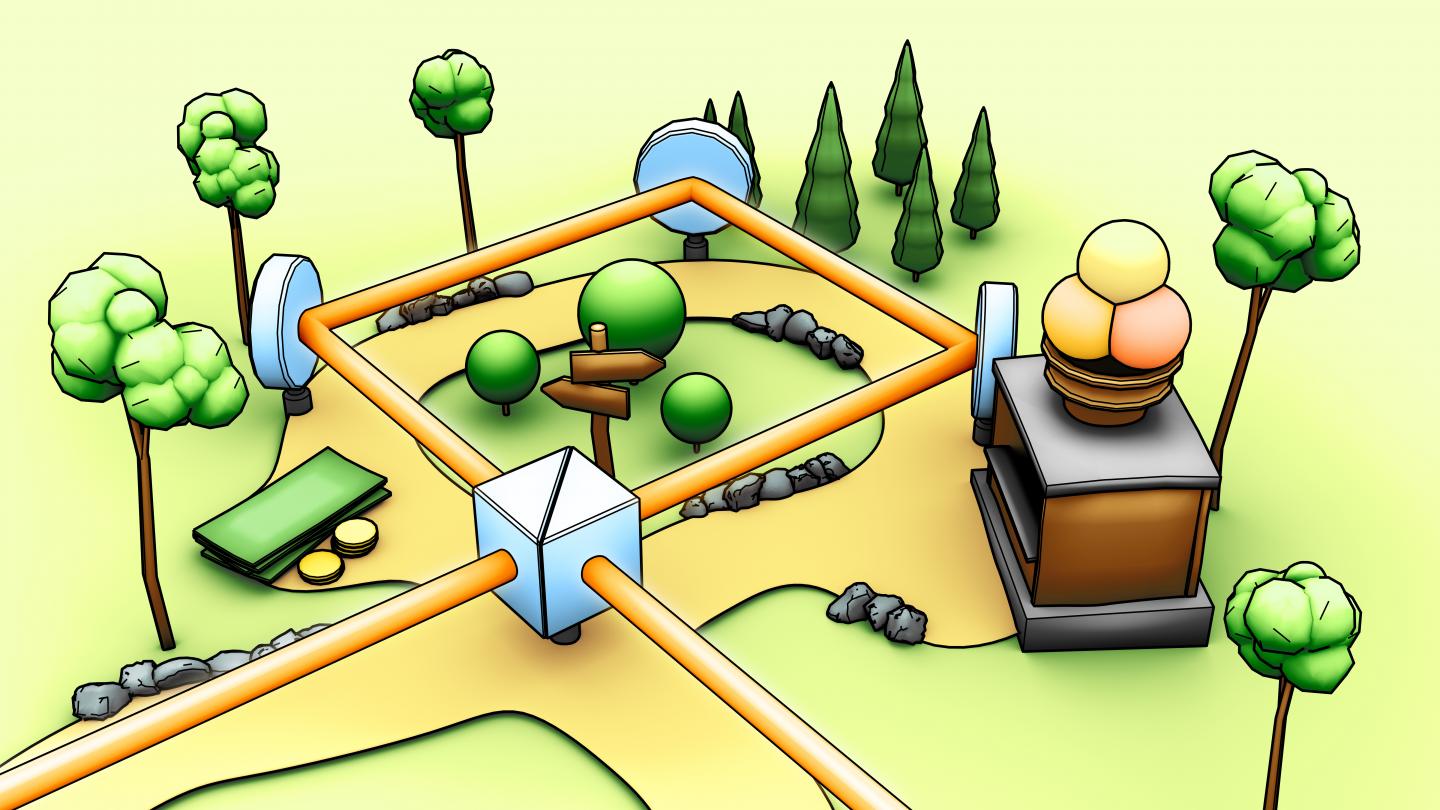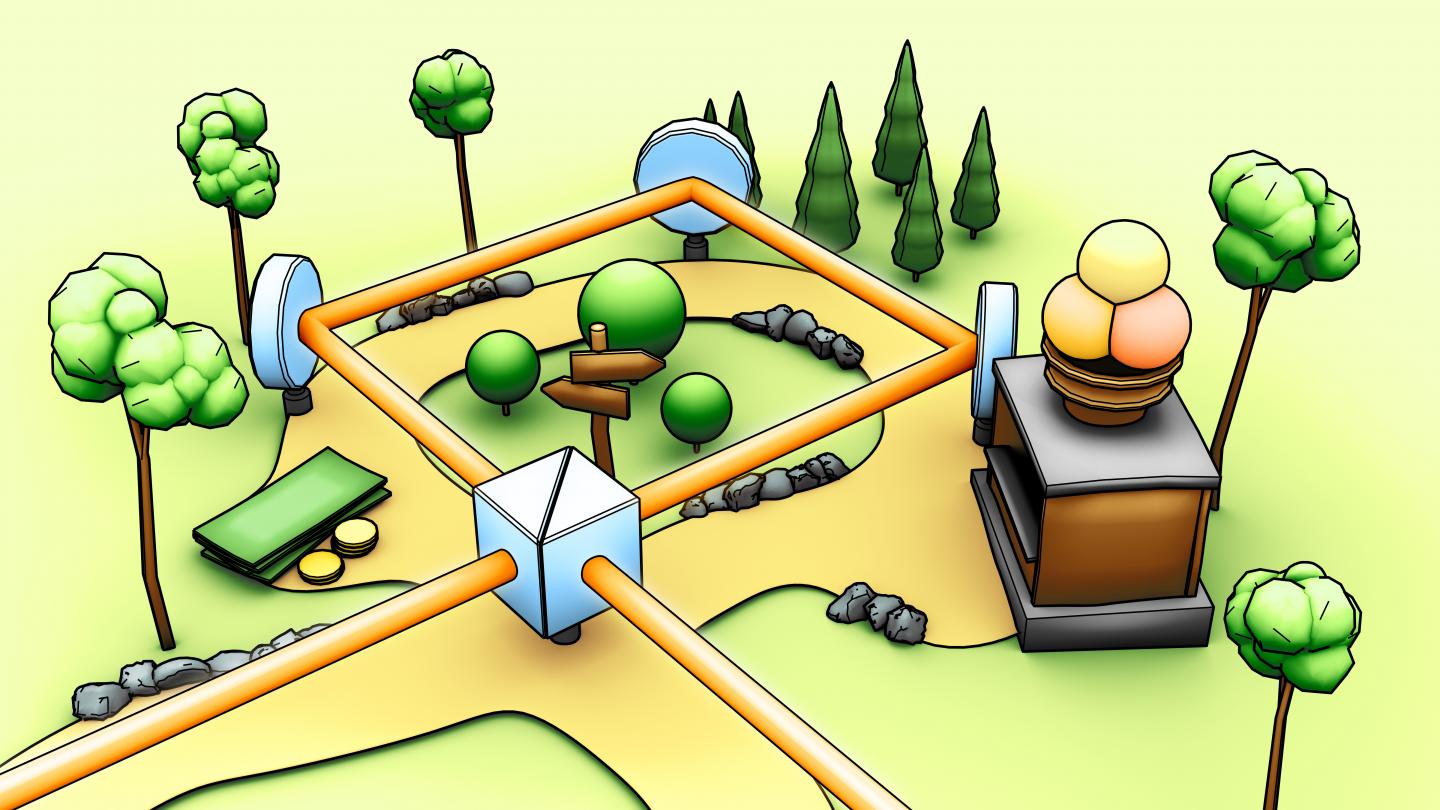
Credit: Copyright: MSc. Jonas Schmöle, Faculty of Physics, University of Vienna
Quantum mechanics is based on a set of mathematical rules, describing how the quantum world works. These rules predict, for example, how electrons orbit a nucleus in an atom, and how an atom can absorb photons, particles of light. The standard rules of quantum mechanics work extremely well, but, given that there are still open questions regarding the interpretation of quantum mechanics, scientists are not sure whether the current rules are the final story. This has motivated some scientists to develop alternative versions of the mathematical rules, which are able to properly explain the results of past experiments, but provide new insight into the underlying structure of quantum mechanics. Some of these alternative mathematical rules even predict new effects, which require new experimental tests.
Everyday experience of mathematical rules
In everyday life, if we walk all the way around a park we end up back at the same place regardless of whether we choose to walk clockwise or counter-clockwise. Physicists would say that these two actions commute. Not every action needs to commute, though. If, on our walk around the park, we walk clockwise, and first find money lying on the ground and then encounter an ice cream man, we will exit the park feeling refreshed. However, if we instead travel counter-clockwise, we will see the ice cream man before finding the money needed to buy the ice cream. In that case, we may exit park feeling disappointed. In order to determine which actions commute or do not commute physicists provide a mathematical description of the physical world.
In standard quantum mechanics, these mathematical rules use complex numbers. However, recently an alternative version of quantum mechanics was proposed which uses more complex, so-called "hyper-complex" numbers. These are a generalization of complex numbers. With the new rules, physicists can replicate most of the predictions of standard quantum mechanics. However, hyper-complex rules predict that some operations that commute in standard quantum mechanics do not actually commute in the real world.
Searching for hyper-complex numbers
A research team led by Philip Walther has now tested for deviations from standard quantum mechanics predicted by the alternative hyper-complex quantum theory. In their experiment the scientists replaced the park with an interferometer, a device which allows a single photon to travel two paths at the same time. They replaced the money and ice cream with a normal optical material and a specially designed metamaterial. The normal optical material slightly slowed down light as it passed through, whereas the metamaterial slightly sped the light up.
The rules of standard quantum mechanics dictate that light behaves the same no matter whether it first passes through a normal material and then through a metamaterial or vice versa. In other words, the action of the two materials on the light commutes. In hyper-complex quantum mechanics, however, that might not be the case. From the behavior of the measured photons the physicists verified that hyper-complex rules were not needed to describe the experiment. "We were able to place very precise bounds on the need for hyper-complex numbers to describe our experiment," says Lorenzo Procopio, a lead author of the study. However, the authors say that it is always very difficult to unambiguously rule something out. Lee Rozema, another author of the paper, says "we still are very interested in performing experiments under different conditions and with even higher precision, to gather more evidence supporting standard quantum mechanics." This work has placed tight limits on the need for a hyper-complex quantum theory, but there are many other alternatives which need to be tested, and the newly-developed tools provide the perfect avenue for this.
###
Publication in Nature Communications:
"Single-Photon Test of Hyper-Complex Quantum Theories Using a Metamaterial"
Lorenzo M. Procopio, Lee A. Rozema, Zi Jing Wong, Deny R. Hamel, Kevin O'Brien, Xiang Zhang, Borivoje Dakic, and Philip Walther
Nature Communications
DOI: 10.1038/ncomms15044
Media Contact
Philip Walther
[email protected]
43-142-777-2560
@univienna
http://www.univie.ac.at/en/
############
Story Source: Materials provided by Scienmag





